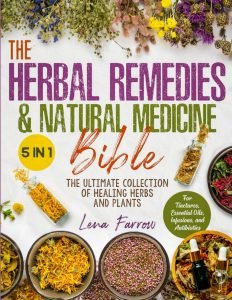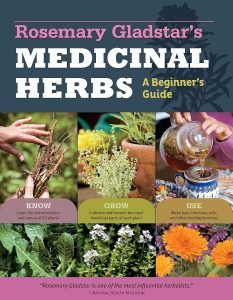The Difference Between Herbal And Conventional Medicine?
Have you ever wondered about the difference between herbal and conventional medicine? In this article, we will explore the contrasting characteristics of these two approaches to healing. While both herbal remedies and conventional medicine aim to improve health and treat ailments, they differ in their sources, methods of preparation, and approach to treatment. So, whether you’re a curious individual or someone seeking alternative remedies, join us as we unravel the fascinating distinctions between herbal and medicine.

Definition of Herbal and Medicine
Herbal
Herbal refers to remedies or products that are derived from plants and typically used for medicinal purposes. These herbal remedies are often made from the leaves, flowers, stems, or roots of various plants, and they have been used for centuries in traditional medicine practices around the world. Herbal medicine is based on the belief that these natural plant compounds can support the body’s healing processes and promote overall wellness.
Medicine
On the other hand, medicine, also known as pharmaceuticals or conventional medicine, refers to treatments that are developed through scientific research and are typically manufactured in laboratories. These medicines are typically created using synthetic compounds or chemical substances targeting specific ailments or health conditions. Unlike herbal remedies, pharmaceutical medicines undergo rigorous testing and evaluation before they are approved for use by regulatory authorities.
Sources and Ingredients
Herbal
The sources and ingredients used in herbal remedies vary widely depending on the specific remedy and the culture from which it originates. Plants such as ginger, turmeric, garlic, ginseng, and chamomile are commonly used in herbal preparations. These plants contain various compounds, such as antioxidants, flavonoids, and essential oils, which are believed to have medicinal properties. Additionally, herbal remedies may include other natural substances like minerals, animal parts, and even certain fungi.
Medicine
In pharmaceutical medicine, the sources and ingredients are primarily synthetic compounds that are created in laboratories. Researchers carefully select and manipulate these compounds to target specific disease mechanisms or symptoms. Pharmaceutical medicines are typically made from chemicals derived from petroleum, minerals, or plants. These compounds undergo rigorous testing and quality control to ensure their safety and efficacy before they are made available to the public.
Regulation and Safety Standards
Herbal
Regulation and safety standards for herbal remedies vary significantly between countries. In some countries, herbal remedies are classified as dietary supplements and are not subject to the same rigorous regulations as pharmaceutical medicines. However, certain regulatory bodies and organizations, such as the U.S. Food and Drug Administration (FDA) and the European Medicines Agency (EMA), have established guidelines for the safety, quality, and labeling of herbal products.
Medicine
Pharmaceutical medicines, on the other hand, are highly regulated to ensure their safety and effectiveness. Before a pharmaceutical medicine can be marketed, it must undergo a series of clinical trials to assess its safety and efficacy. Regulatory authorities, such as the FDA in the United States, carefully review these trial results and other relevant data before approving them for public use. Additionally, pharmaceutical companies must adhere to strict manufacturing standards to ensure consistent quality and safety of their products.
Effectiveness and Efficacy
Herbal
The effectiveness and efficacy of herbal remedies can vary depending on the specific remedy, the condition being treated, and individual factors such as genetics and overall health. While some herbal remedies have a long history of traditional use and anecdotal evidence supporting their efficacy, scientific research on herbal medicines is still evolving. Some herbal remedies have shown promising results in research studies, while others have not demonstrated consistent efficacy when compared to placebos or conventional medicines.
Medicine
Pharmaceutical medicines undergo extensive research and clinical trials to determine their effectiveness and efficacy. They are specifically designed to target the underlying mechanisms of a particular disease or condition. The scientific research conducted on pharmaceutical medicines follows a rigorous process that includes randomized controlled trials, systematic reviews, and meta-analyses. The data obtained from these studies provide evidence of the medicine’s effectiveness and efficacy in treating specific ailments.

Usage and Administration
Herbal
Herbal remedies can be administered in various forms, including teas, capsules, extracts, ointments, or tinctures. The dosage and administration of herbal remedies often vary depending on the specific remedy and the individual’s condition. Traditional practitioners and herbalists may recommend specific dosages or combinations of herbs based on their knowledge and experience. However, it is important to note that self-medication with herbal remedies should be approached with caution, and it is advisable to consult with a qualified healthcare professional before using them.
Medicine
Pharmaceutical medicines are typically available in conventional forms such as tablets, capsules, injections, or creams. The dosage and administration instructions for pharmaceutical medicines are carefully determined through clinical trials and extensive research. Healthcare professionals, such as doctors or pharmacists, prescribe and administer pharmaceutical medicines based on the individual’s specific condition, medical history, and other factors. It is essential to follow the prescribed dosage and administration instructions for pharmaceutical medicines to ensure their effectiveness and safety.
Side Effects and Adverse Reactions
Herbal
Herbal remedies may have the potential to cause side effects or adverse reactions, although they are generally considered to be safer than pharmaceutical medicines. The side effects of herbal remedies can vary depending on the specific herb and the individual’s sensitivity or potential allergies. It is worth noting that herbal remedies can interact with certain medications or medical conditions, which may lead to adverse reactions. It is crucial to disclose any herbal remedies you are taking to your healthcare provider to avoid potential interactions and minimize the risk of adverse effects.
Medicine
Pharmaceutical medicines are known to have a wide range of side effects and adverse reactions, as they often contain potent synthetic compounds. These side effects can vary from mild discomfort to severe or even life-threatening reactions. Healthcare professionals carefully evaluate the risk-benefit ratio before prescribing pharmaceutical medicines, taking into account the potential side effects. It is essential to inform your healthcare provider about any pre-existing medical conditions or medications you are taking to minimize the risk of adverse reactions.

Interactions with Other Medications
Herbal
Herbal remedies can interact with other medications, including pharmaceutical medicines, causing unwanted effects or reducing their effectiveness. Some herbs may affect the metabolism or absorption of certain medications, altering their levels in the body. It is crucial to inform your healthcare provider about any herbal remedies you are taking, especially if you are also using prescription or over-the-counter medicines. They can provide guidance on potential interactions and help you make informed decisions regarding their combined use.
Medicine
Pharmaceutical medicines can also interact with other medications, including herbal remedies. Drug-drug interactions can occur when two or more medications interact in the body, leading to altered effects or increased risk of side effects. Healthcare professionals are trained to assess potential interactions between pharmaceutical medicines and advise patients accordingly. It is important to disclose all medications, including herbal remedies, to your healthcare provider to ensure the safe and effective use of pharmaceutical medicines.
Availability and Accessibility
Herbal
Herbal remedies are widely available in various forms, including health food stores, herbal shops, online retailers, and even some conventional pharmacies. The accessibility of herbal remedies can vary depending on the region and the specific remedy. However, it is crucial to ensure the quality and authenticity of the herbal products, as not all products on the market may meet the necessary safety and efficacy standards. It is advisable to purchase herbal remedies from reputable sources and consult with a healthcare professional to ensure their suitability for your needs.
Medicine
Pharmaceutical medicines are typically available through prescription from healthcare professionals, such as doctors or pharmacists. They can be obtained from pharmacies, hospitals, or healthcare facilities. The accessibility of pharmaceutical medicines may depend on various factors, including healthcare infrastructure, regulations, and availability in different countries or regions. The distribution and availability of pharmaceutical medicines are strictly regulated to ensure their safe and appropriate use.
Cost and Affordability
Herbal
The cost of herbal remedies can vary significantly depending on the specific herb, the form of the product, and the region. In some cases, herbal remedies may be more affordable compared to pharmaceutical medicines, particularly if the herbs are readily available locally or can be grown at home. However, it is important to consider factors such as sustainability, quality, and potential interactions before solely basing the decision on affordability. Consulting with healthcare professionals can provide guidance on cost-effective and suitable herbal remedies.
Medicine
Pharmaceutical medicines can be significantly more expensive compared to herbal remedies. The costs associated with pharmaceutical medicines include research and development, clinical trials, production, marketing, and distribution. The affordability of pharmaceutical medicines can vary depending on multiple factors, including healthcare systems, insurance coverage, and government regulations. Access to affordable pharmaceutical medicines is often a global public health concern, and efforts are continuously made to ensure their availability and affordability for all individuals.
Integrative Approaches in Healthcare
Herbal
Integrative approaches in healthcare refer to the holistic incorporation of both herbal remedies and conventional medicine in patient care. Many individuals and healthcare providers recognize the potential benefits of combining herbal remedies with pharmaceutical medicines to optimize treatment outcomes. Health professionals who practice integrative medicine consider patient preferences, safety profiles, and the available evidence when developing treatment plans. The integration of herbal remedies and conventional medicine can offer a comprehensive, personalized approach to healthcare that considers both traditional and scientifically validated treatments.
Medicine
Integrative medicine also emphasizes the integration of complementary therapies and conventional medicine to achieve optimal health outcomes. Healthcare professionals who practice integrative medicine recognize the potential benefits of incorporating herbal remedies into treatment plans, but do so alongside the best available evidence from the field of pharmaceutical medicine. Collaborative efforts between traditional medicine practitioners and healthcare professionals can enhance patient care and empower individuals to make informed decisions about their health.
In conclusion, herbal remedies and pharmaceutical medicines have distinct differences in their sources, regulations, effectiveness, side effects, availability, and affordability. While herbal remedies offer natural alternatives rooted in traditional practices, pharmaceutical medicines provide scientifically researched treatments. Choosing between herbal remedies and pharmaceutical medicines often depends on individual preferences, medical conditions, safety considerations, and the guidance of healthcare professionals. Embracing an integrative approach that combines both herbal and conventional medicine can offer a balanced approach to healthcare, taking advantage of the benefits of both practices. It is essential to make informed decisions and consult healthcare professionals for personalized advice to ensure the safe and effective use of both herbal remedies and pharmaceutical medicines.




